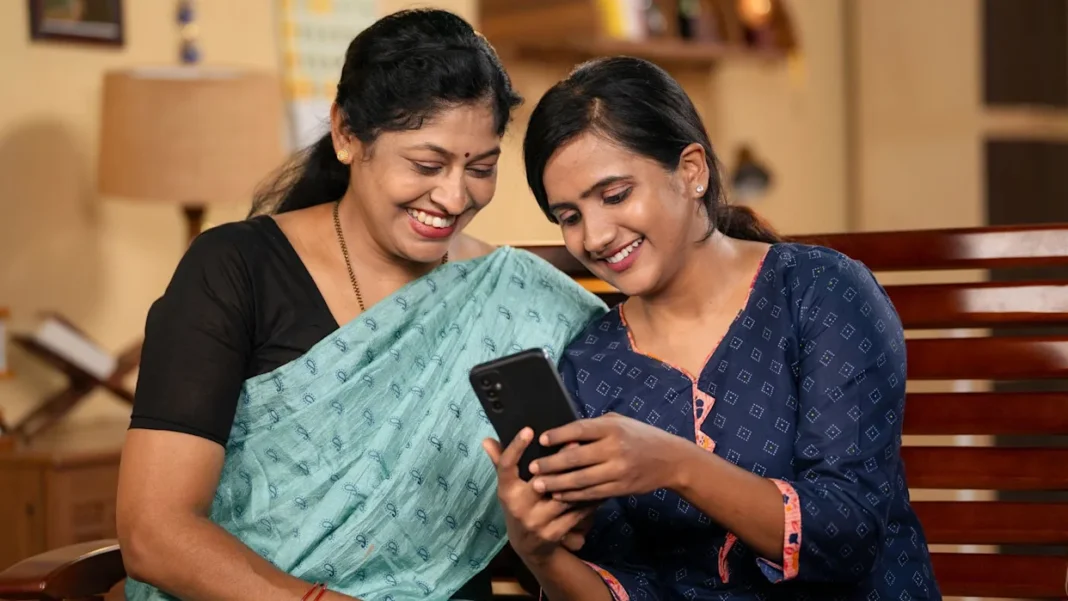Can an Indian-developed messaging platform truly challenge the global dominance of WhatsApp?
Over the past few weeks, Arattai, a chat app built by Indian technology firm Zoho, has become an online sensation across the country. The company reported that it recorded seven million downloads in “seven days last week”, though it didn’t specify exact dates. According to data from analytics firm Sensor Tower, Arattai had fewer than 10,000 downloads in August, making this surge particularly remarkable.

The word Arattai means banter in Tamil. Although it quietly debuted in 2021, it initially attracted little public attention. Its newfound popularity appears to be tied to the Indian government’s push for economic self-reliance, especially as India continues to grapple with the effects of steep U.S. trade tariffs on its exports.
It’s a sentiment that Prime Minister Narendra Modi and his ministers have echoed repeatedly in recent weeks — encouraging citizens to “Make in India” and “Spend in India.”
A couple of weeks ago, Federal Minister Dharmendra Pradhan posted on X (formerly Twitter) promoting Arattai and urging citizens to “use India-made apps to stay connected.” Since that post, several other ministers, business leaders, and influencers have joined the conversation, boosting Arattai’s visibility.
According to Zoho, this wave of government encouragement has “clearly helped drive the sudden surge in Arattai downloads.”
“In just three days, our daily sign-ups rose from 3,000 to 350,000,”
said Zoho CEO Mani Vembu in an interview with the BBC.
“We saw a 100-fold increase in active users — and the number continues to grow. This demonstrates users’ enthusiasm for a homegrown product that caters to their specific needs.”
While Zoho hasn’t disclosed the exact number of active users, analysts note that it’s still a long way from WhatsApp’s 500 million monthly active users in India — by far the platform’s largest market. WhatsApp has become deeply embedded in Indian life, used for everything from morning greetings to running full-fledged businesses.
Data from Sensor Tower indicates that over 95% of Arattai’s active users in September were based in India.

Feature-wise, Arattai closely mirrors WhatsApp. Users can send messages, make voice and video calls, and even access business tools. Like WhatsApp, the app is designed to run efficiently on low-end smartphones and slow internet connections.
Social media users have praised Arattai for its clean interface, ease of use, and patriotic appeal as a Made-in-India alternative. Many encouraged others to download it and “support local innovation.”
However, Arattai is not the first Indian app to dream of replacing international tech giants. In recent years, Koo was marketed as an alternative to X, while Moj positioned itself as India’s answer to TikTok after the Chinese app’s 2020 ban. Both saw early spikes in downloads but eventually faded. Even ShareChat, once dubbed a WhatsApp challenger, has since scaled back its ambitions.
Tech analyst Prasanto K. Roy, based in Delhi, believes Arattai faces a steep uphill battle.
He notes that WhatsApp’s vast ecosystem — encompassing not only users but also businesses and government services — makes it particularly difficult to displace.
“Arattai’s challenge isn’t just to attract new users but to retain them,” Roy says. “Patriotic enthusiasm alone won’t sustain long-term growth. Even with a strong product, replacing an app with billions of existing users is nearly impossible.”
Another major concern surrounding Arattai is data security. Although the app currently supports end-to-end encryption (E2EE) for voice and video calls, this protection does not yet apply to text messages.

According to Shashidhar KJ, managing editor at MediaNama, the government’s emphasis on “traceability” — the ability to track message origins for security reasons — could compromise user privacy.
“Without end-to-end encryption, traceability becomes easy, but it also puts people’s private conversations at risk,” he explains.
Zoho has stated that it’s working quickly to roll out E2EE for messages as well.
“We originally planned to launch Arattai after full encryption was ready — within a couple of months,”
said Mani Vembu. “But due to the early rollout, we’re fast-tracking critical features and infrastructure.”
WhatsApp, by contrast, already offers end-to-end encryption for all messages and calls. However, it still shares metadata — such as timestamps or call logs — with governments when legally required.
Under Indian law, digital platforms must provide user data to the federal government under specific conditions. Obtaining this information from foreign-based companies like Meta (WhatsApp) or X (formerly Twitter) is often complicated and slow.
These global tech giants also possess the financial and legal resources to push back against government demands they consider excessive.
For example, in 2021, WhatsApp sued the Indian government over new digital regulations it claimed violated users’ privacy rights. X has similarly filed legal challenges against the government’s power to remove or block content.
This raises a pressing question: Would Arattai — as an Indian company — be able to resist similar government requests?

Tech law expert Rahul Matthan argues that public confidence in Arattai will depend on how transparent Zoho is about its privacy architecture and its stance on sharing user data.
“Until Zoho clarifies its approach, some users will hesitate to trust the app fully,” he says.
Roy adds that Zoho might find it difficult to push back against authorities, given that federal ministers have actively promoted the app. “For a local startup, defying government pressure is rarely easy,” he notes.
When asked about the company’s position, Vembu emphasized Zoho’s commitment to user autonomy.
“We want our users to have complete control over their data while still adhering to India’s IT regulations,”
he said. “Once end-to-end encryption is in place, even we won’t have access to message content. We’ll also remain transparent about any legal obligations.”
History suggests that Indian apps face a tough road competing against habit-forming global giants like WhatsApp and Facebook. While Arattai’s rapid rise demonstrates strong national support, its long-term survival will depend on how well it can innovate, ensure privacy, and maintain user engagement.
Whether Arattai becomes a true rival — or joins the ranks of promising but short-lived alternatives — remains to be seen.




